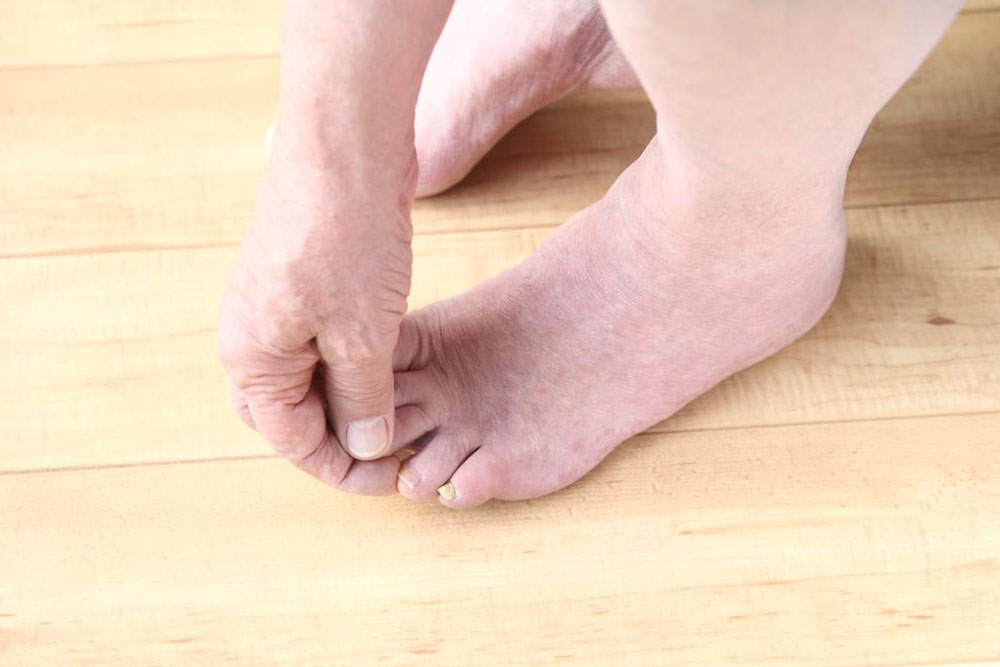A Complete Guide to Diabetic Feet Care
Diabetes, which is also referred to as diabetes mellitus, is a health disorder characterized by high blood sugar levels. This is caused due to fluctuating insulin levels in the body. It is a long-term condition that affects various parts of the body like heart, kidneys, and limbs in the long run.
Regular and consistent foot care is vital for a diabetic patient. Even the slightest neglect or postponement of foot checkups may lead to serious complications like loss of limbs. Taking good care of diabetic feet goes a long way in the prevention of infections and other complications.
Foot Complications Due to Diabetes
Diabetes affects vital organs in the long run. Maintaining sugar levels through medication and active lifestyle can prevent health complications due to diabetes to a large extent. Uncontrolled and unmonitored diabetes leads to several life-threatening complications. Unregulated diabetes can lead to eye, foot, skin, hearing, cardio, and renal complications.
Common diabetic feet complications are neuropathy, foot ulcers or sores, and gangrene, which lead to amputation of the limb. Prolonged diabetes affects the nerves (diabetic neuropathy) and hampers the blood supply to the feet. Also, wearing ill-fitting footwear can also lead to diabetic feet problems.
Diabetic peripheral neuropathy affects the nerves of the feet, resulting in numbness and complete loss of sensation if left untreated. People with long-term diabetes or uncontrolled diabetes are likely to develop peripheral neuropathy. What starts as a tingling sensation and occasional periods of numbness becomes a permanent loss of sensation to the feet. As a result, walking and balancing become difficult for the person. Since there is no sensation in the feet, cuts or wounds may not cause pain for the diabetic.
Poor blood circulation to the limbs is another diabetic feet complication. Prolonged or unchecked diabetes leads to thickening of arteries. This, in turn, causes poor blood flow to injured tissues. As a result, the healing of wounds takes a long time. When blood flow is restricted to your feet the tissues die.
Other infections like athlete’s foot or ingrown toenails can be more serious for a diabetic patient. Without prompt foot care, even minor infections may grow into complications. Smoking causes more damage in a diabetic than a normal individual. It damages the small blood vessels in the feet and legs, which disrupts the healing and proper functioning of the limbs.
Diabetes and Foot Care
Proper and regular foot care is essential for a diabetic. Here is a complete guide to diabetic foot care:
- Regular Foot Examination
Be vigilant while examining your feet. Report any cuts or wounds or blisters to the doctor immediately. Ensure proper foot hygiene by washing them regularly and maintaining dryness. Wear socks for extra protection outdoors. Avoid wearing tight-fitting socks as they may impair blood circulation. - Clearing the Clutter
While indoors, we often trip over or bang the feet against some obstacles. Make sure your living space is free of clutter, especially on the floor. Arrange furniture in a way that allows free moving around your living space. - Regular Pedicure
Trim toenails regularly to avoid any infection due to ingrown toenails. Apply a light moisturizer after you wash your feet. Avoid application of moisturizer in between toes. - Comfortable Footwear
Make sure you wear sturdy and comfortable footwear that does not cause abrasions or blisters on your feet. Consult your doctor if necessary. - Active Lifestyle
Maintain an active and healthy lifestyle that includes regular exercise and healthy eating habits. At home or at work, avoid standing or sitting in one position for long durations. - Smoking Cessation
Quit smoking to prevent serious complications due to diabetes. Smoking is a major cause of cardiovascular and foot complications in diabetics. - Control of Blood Sugar
Unmonitored and uncontrolled blood sugar is the main reason for foot complications in diabetes. Make sure you get the levels checked regularly and take the prescribed medication.
Medical intervention for diabetic foot complications is required to treat foot infections. Antibiotics are given for infected wounds on feet. It is critical that the diabetic completes the entire antibiotic course to ensure complete eradication of the infection. There are a number of wound care centers that specialize in treating diabetic lower extremity wounds and sores. For corns, calluses, or heel spurs, an orthopedic surgeon may be consulted to prevent further complications.
Complications due to uncontrolled and unchecked diabetes can lead to complications that can impair your life. Ensure periodic checkups with the doctor to prevent diabetic feet complications.



